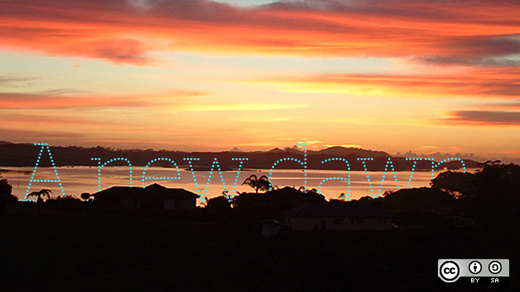When I said recently that we still need the Open Source Initiative (OSI), it started a flood of comment. There's no doubt that we need OSI - but we need a better OSI. The one we have now is just too small to be effective and too mired in past successes; a renaissance is needed. You can help.
Yesterday and Today
OSI was formed in 1998 to solve a pressing problem. The founders embraced the ideals of software freedom, but saw that businesses - being non-persons - lacked any way to embrace a philosophical principle. To advance software freedom, it needed to be pragmatically "projected" onto the surface of the computer industry of 1998. The result was a focus on a certain kind of advocacy, plus an enormously valuable effort to analyse, categorise and selectively endorse copyright licenses. OSI was the pragmatic projection of software freedom onto the computer industry of 1998.
But in 2010, the industry has changed. It's due in no small part to the effects of software freedom on technology and innovation, with the pragmatic liberties it guarantees seeding today's key trends. It's also in part due to the attempted corruption of open standards and the policies that rely on them, which has allowed proprietary software an undeserved ascendancy. So while new businesses are able to be formed with philosophical and ethical principles embedded in their DNA, existing ones still can't "embrace software freedom" since that's a capability only of intelligent individuals.
Today we have a mature understanding of open source issues and licensing that means the advocacy initiatives of 1999 are less necessary and the license approval role has changed. The growth of cloud computing - even with open APIs and open data - means that liberty assurance mechanisms based only on source code are inadequate to identify the presence of software freedom. And the maturity of the open source market means the 'games' that existing corporations play on the market are sophisticated enough to use open source as a corporate weapon instead of as a path to liberty.
Re-projection
We need to repeat the exercise of projecting software freedom onto its surface, reinventing OSI to steward the resulting activities. That may well mean:
- addressing today's trends, such as open data and open cloud computing;
- increasing consumer awareness of open source and the four freedoms (beyond the code and the geeks);
- educating the next generation of computer science graduates (many of whom think open source or free software just mean "Linux");
- dealing with the engagement of powerful industry corporations such as Microsoft, Google, IBM, Oracle and SAP;
- expanding resources for government and NGOs to adopt and institute open source programs;
- sustaining license review activities, which remain a key function for OSI (but now with an emphasis on avoiding new licenses unless they are essential).
However OSI is formed with a board which is the de facto entire volunteer base. There is also a "chicken and the egg" problem that there is no clear door into OSI so there is no one to form an electorate and there is no "new blood". OSI has been trying to fix this but it requires work. The first attempt the Board made involved inviting 50 people to discuss the problem in an online forum last year. This didn't devise a new governing membership body, but did work through all of the possible ways OSI could be governed and more effective.
Change Inevitable
Change is now inevitable because the board recently passed rules imposing term limits to make room for new blood. A significant number of long-term Board members retire this year and next. So it's vital that a plan for OSI's future be devised. As I have said before, I'm convinced that future has to be membership-based, with a Board that represents people working on grass-roots software freedom matters.
Which is where you come in. Plenty of people spent time here and on Slashdot throwing rocks at OSI - many deserved - but there's an opportunity to join in to fix things. At the last Board meeting I was asked to get a group together to draw up a new, member-led governance charter for OSI. We've got a good idea of the outline thanks to the earlier work, but there need to be smart, informed people with a heart for software freedom from around the world involved to draft and write the details. Is that you?
We are also keen to see more people involved in other aspects of OSI. If you have experience with writing charters, administering servers, web design, trademark policy or any other aspect of the renewal of OSI, then please write to me, webmink at opensource dot org, or contact the OSI Board.
I'm sure the criticism of OSI will continue, but there's an opportunity to be part of the solution instead of part of the problem. Will you take it?
[First published by ComputerWorldUK on June 14, 2010]







6 Comments